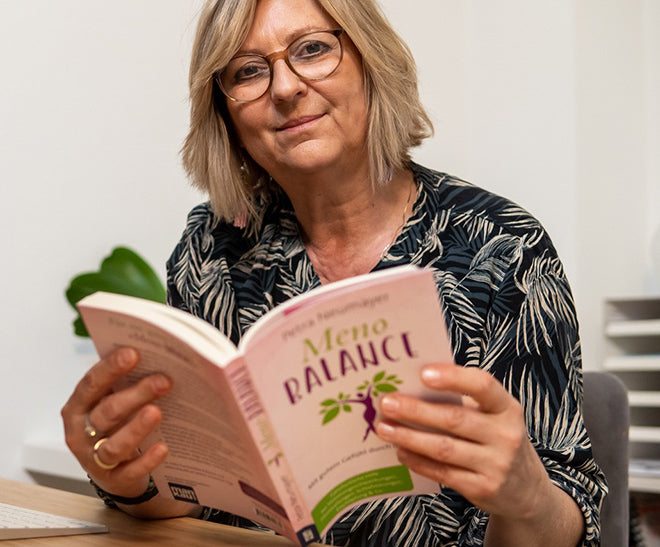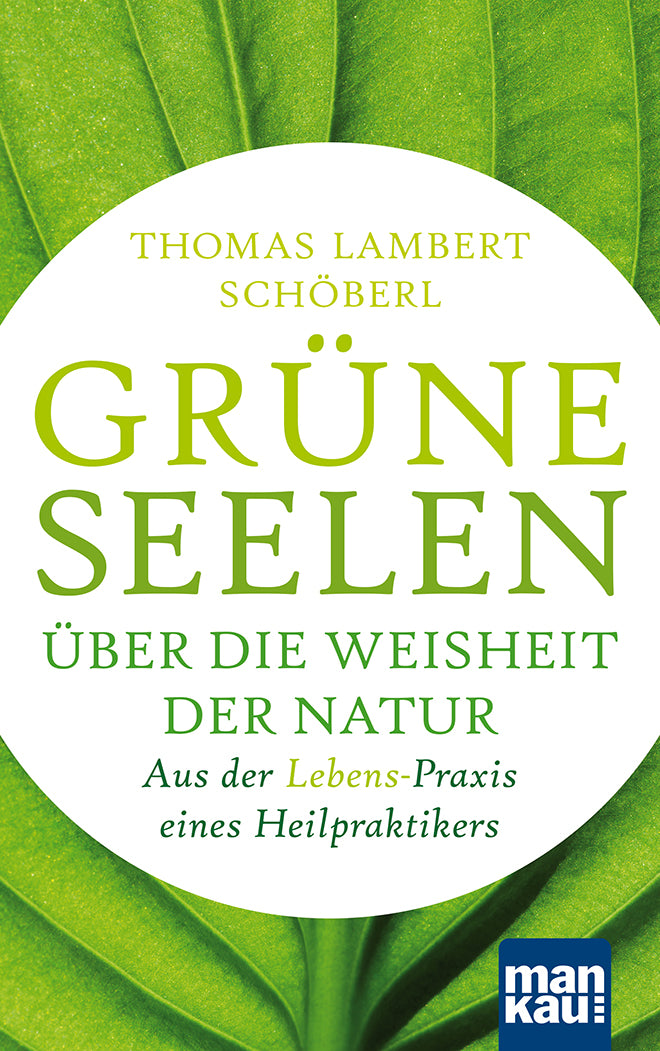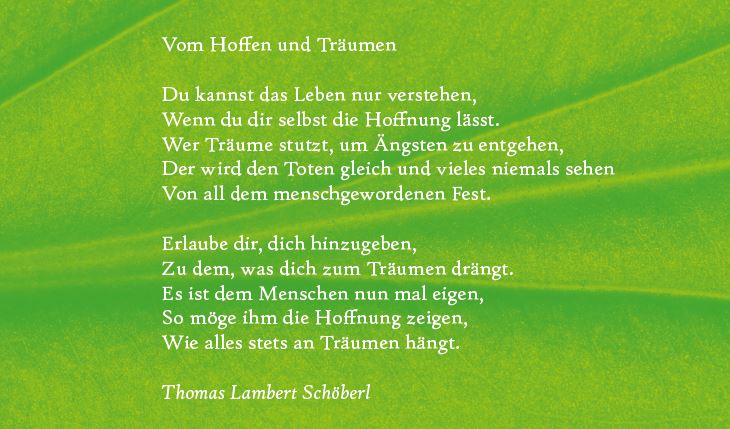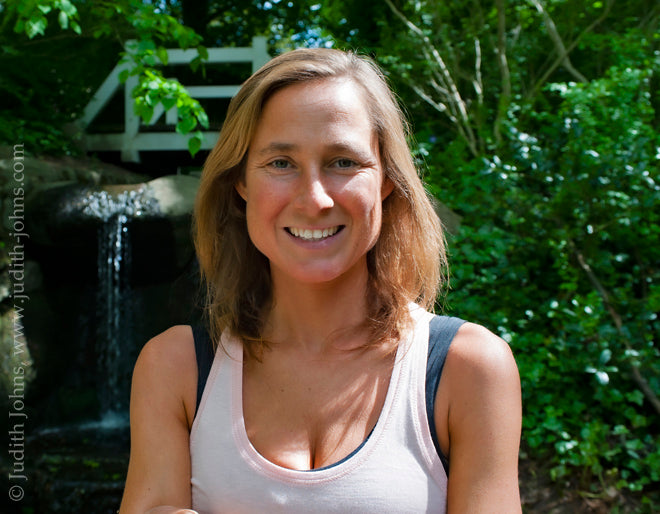
Interview with Petra Neumayer: “Find your way from the burden back to the pleasure of hormones!”
Interview with Petra Neumayer: “Find your way from the burden back to the pleasure of hormones!”
Is it actually possible to optimize hormone balance yourself? "Yes!" says medical journalist Petra Neumayer . "Because with the compact knowledge of 'hormone friends' and 'hormone enemies', women can make the right adjustments themselves to bring the female organism back into hormonal balance naturally." Health expert Petra Neumayer, author of the new guidebook " Meno-Balance " and the bestseller " First Aid for Hot Flashes & Co. ", wants to help her readers get through the menopause feeling good and well-being and find new lightness and joy in life.
In 2018, you published a successful guide on the topic of “First aid for hot flashes & co.” What is new about “ Meno-Balance ” and what is the aim of your current book?
Petra Neumayer: As the title of my first menopause book says, the idea was to give readers "first aid" through tips and applications specifically for hot flushes, one of the most annoying complaints for us women. But of course there is a wider range of symptoms and even the risk of illness if hormones are constantly going crazy. What was particularly important to me in the new book was that readers also get an easy-to-understand insight into how the hormonal system works, because there are some adjustments we can make ourselves without having to take medication or hormones.
The so-called "climacteric" is not just about physical symptoms, but also about entering a completely new phase of life. What changes occur with the menopause and how can women best prepare for it?
Petra Neumayer: When I look back at the time until the onset of my menopause, I feel like I have come a long way, during which I had to shed more and more baggage in order to find a new lightness, a new attitude to life and a new "hormonal pleasure". Menopause is rightly referred to as a "change of life", and we women have to go through this process of change on all levels, whether it is finding a new work-life balance, reducing stress, rethinking bad lifestyle or eating habits and much more.
Many women are affected by hot flashes and the like little to no or only for a certain period of time, but around a third suffer very severely from menopausal symptoms. What could be the reason for this different progression?
Petra Neumayer: Science cannot give a clear answer to this either. Influencing factors could be long-term use of the pill, but also the many environmental toxins we are exposed to, the so-called xenoestrogens. These attach to our hormone receptors and can disrupt the organism. An estrogen deficiency or a manifest low level of progesterone and the associated estrogen dominance can also cause severe menopausal symptoms.
With your book you also want to clear up all the myths surrounding the menopause and look at this phase of life from a new perspective. What are the current views and what perspective should replace them?
Petra Neumayer: Many women with severe menopausal symptoms feel stigmatized. They are embarrassed to even talk about it. This has to stop! If a woman has a hormone deficiency, her symptoms have nothing to do with hysteria or "psycho" or with the fact that the children have left home - there is a medical cause. Nobody is embarrassed if the thyroid no longer produces enough thyroxine or the pancreas no longer produces insulin. If a laboratory test confirms that a woman hardly has any progesterone left in her body, for example - then this is also a manifest hormone deficiency.
Everything to do with menopause is very individual... just as individual as hormone levels. What phases does menopause usually go through?
Petra Neumayer: Menopause – in short, that is the name given to the period in which menstruation occurs for the last time. But even before that, when hormone production slowly decreases from around the age of 40, the first symptoms can appear; this period is called premenopause. And the period of one year after menstruation has finally stopped is called postmenopause. The body needs an average of two to five years to get used to the new hormonal situation. After that, the symptoms subside for most women, despite the lower hormone status.
Whether it's growth, metabolism or feelings - hormones are involved in every reaction, no matter how everyday. Keeping these in harmonious balance also depends on diet and lifestyle. What is recommended here to optimize menopause balance?
Petra Neumayer: In my book I describe the biggest "hormone enemies" and the best "hormone friends". These are basically the adjustment screws in our lives that we can turn ourselves to optimize the menopause balance. Stress, for example, is one of the biggest hormone enemies. Not only because it makes us tired and sick and exhausts us in the long run, but because it actually steals hormones. Our lifestyle therefore has a significant influence on the hormone balance. Eating little or no meat that is contaminated with hormones is just as important as eating fruit and vegetables, which should actually still contain enough vital substances. There are also, of course, many foods that trigger symptoms such as hot flashes. These include, for example, spicy sauces, coffee and hot drinks in general. Anyone who drinks menopause teas should let them cool down a bit, otherwise they will not have the desired effect.
Especially with regard to meno-balance, there are a number of medicinal and nutritional plants that can influence the hormonal system and even stimulate hormone production. What are these and what should be taken into account when using them?
Petra Neumayer: Whether it's medicinal teas, superfoods or nutritional supplements - you should never consume them indiscriminately or according to the manufacturer's promises! In many cases, estrogen dominance is present during menopause, which means that if we eat a one-sided diet, for example, we eat a lot of soy products every day, then we could further increase estrogen levels by choosing the wrong foods. In this case, it's better to choose foods that have a progesterone-like effect, such as carrots, asparagus or sweet potatoes. There are also many multitalented plants that can help balance out a wide range of complaints, such as alchemilla (lady's mantle), broccoli, coconut oil, griffonia & co.
One chapter of your book is dedicated to so-called bioidentical hormones. What role do they actually play in hormone balance?
Petra Neumayer: For women who suffer from extremely severe menopausal symptoms, bioidentical hormones can compensate for a manifest hormone deficiency and lead to freedom from symptoms. In my book, you will learn everything you need to know about when the use of bioidentical hormones is worthwhile, whether there are any risks and what different forms of application there are.
Petra Neumayer: Meno-Balance. Mankau Verlag, 1st edition April 2021, paperback, 13.5 x 21.5 cm, 191 pp., 14.95 euros (D) / 15.40 euros (A), ISBN 978-3-86374-587-5.











